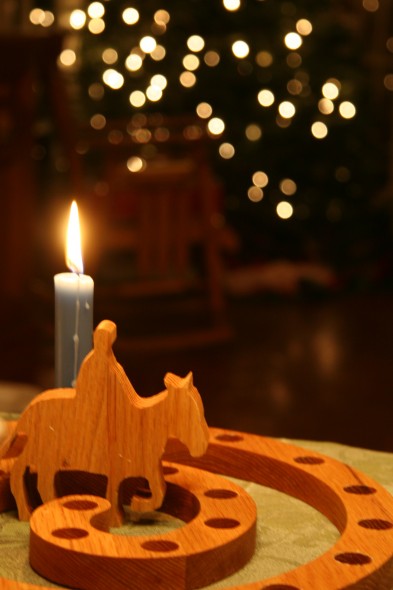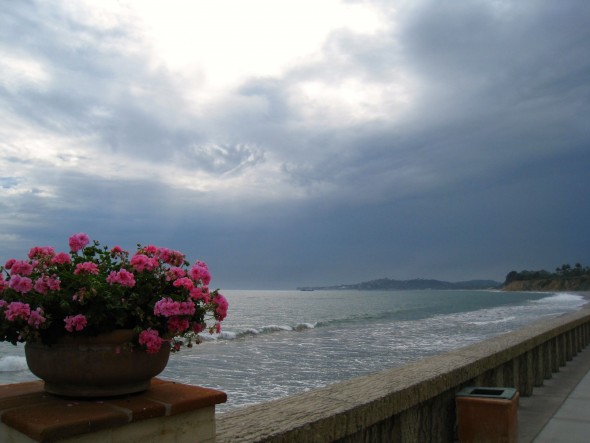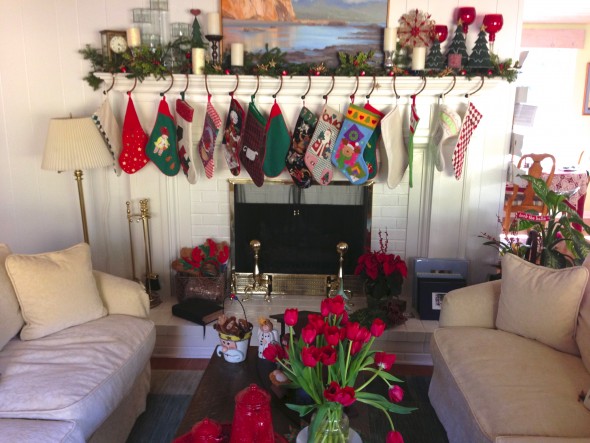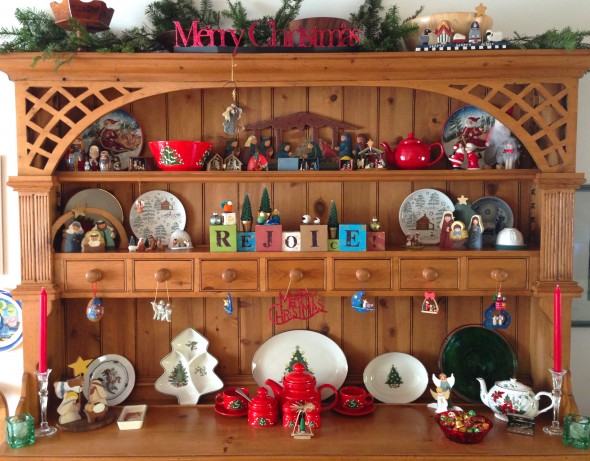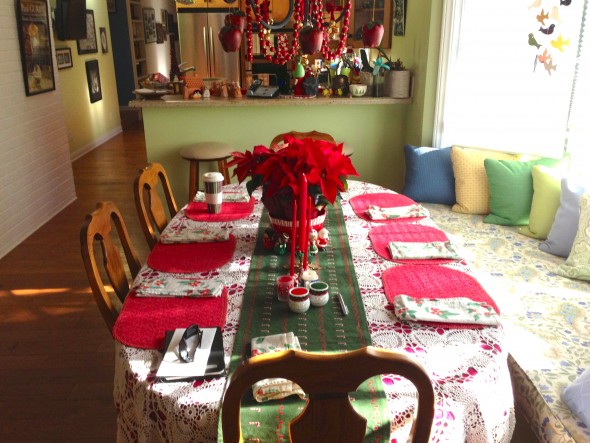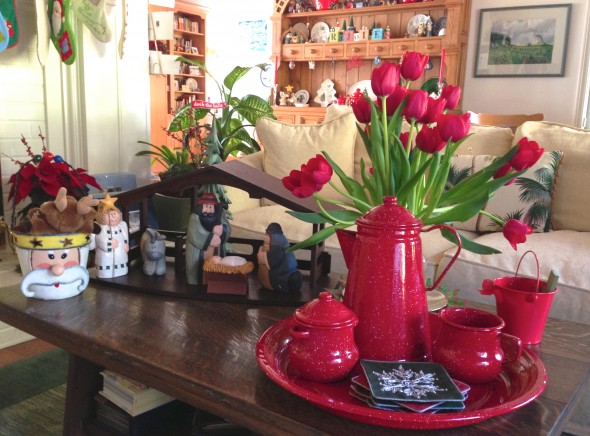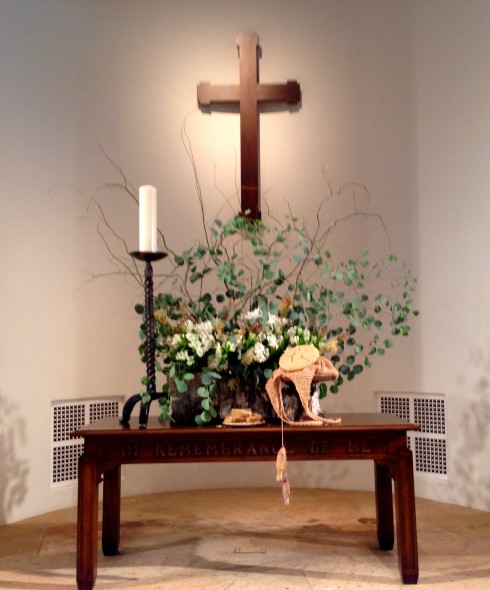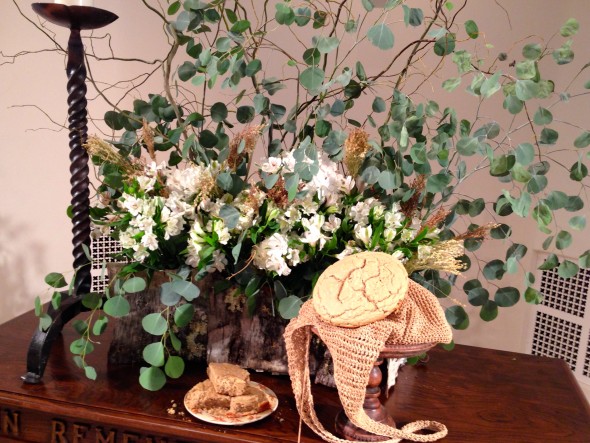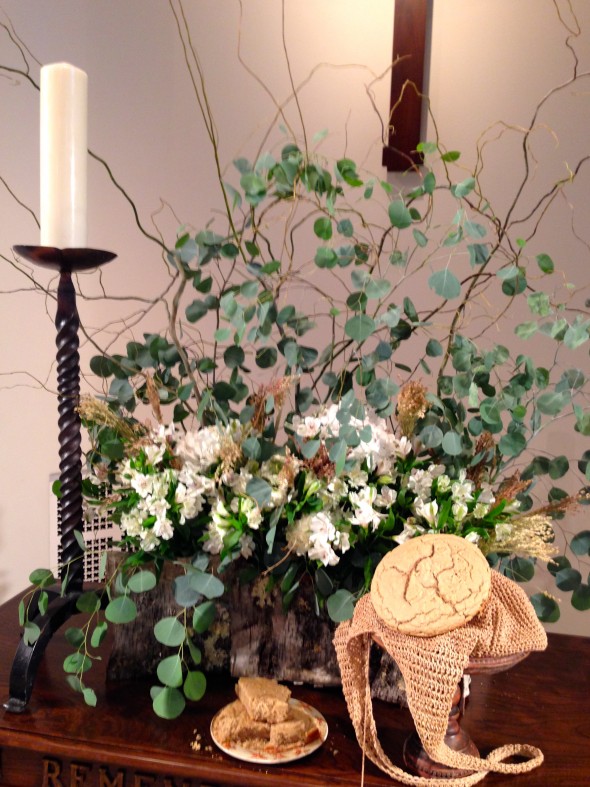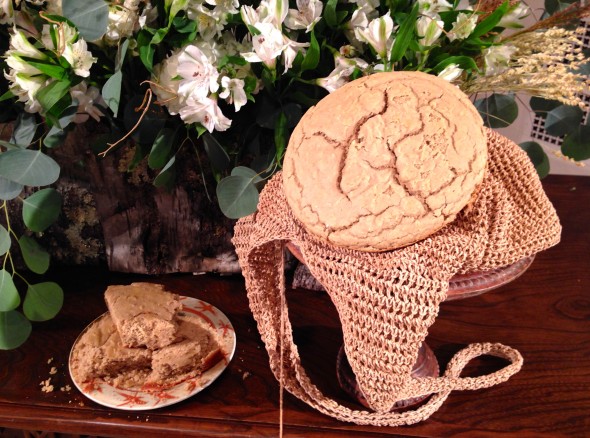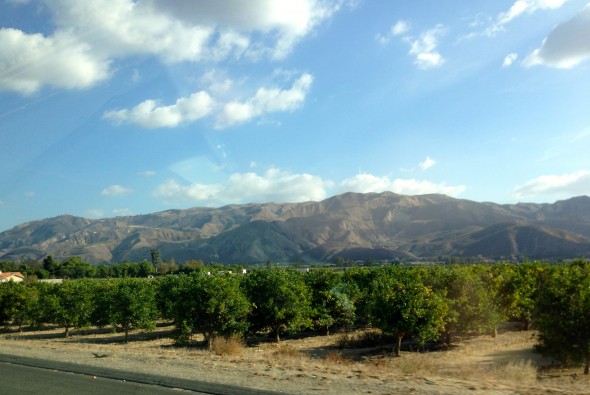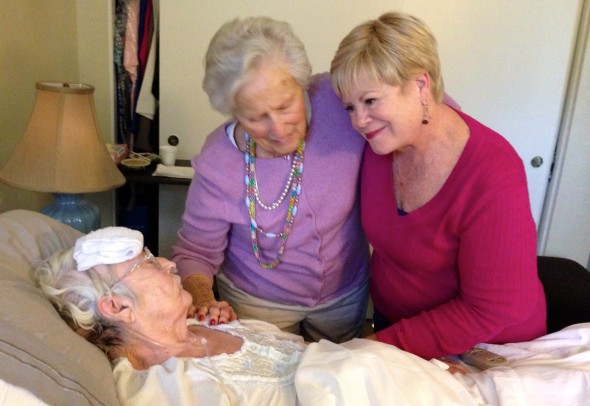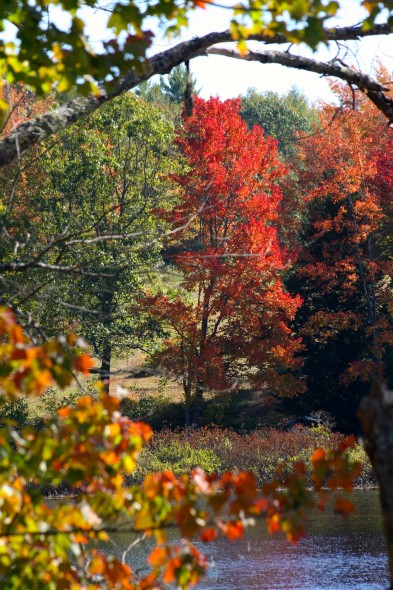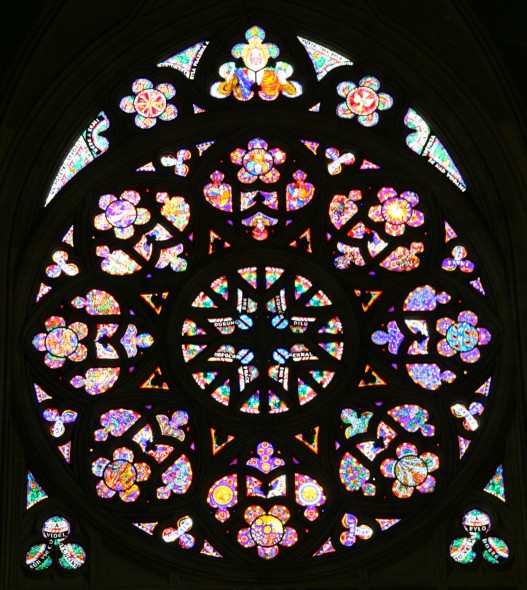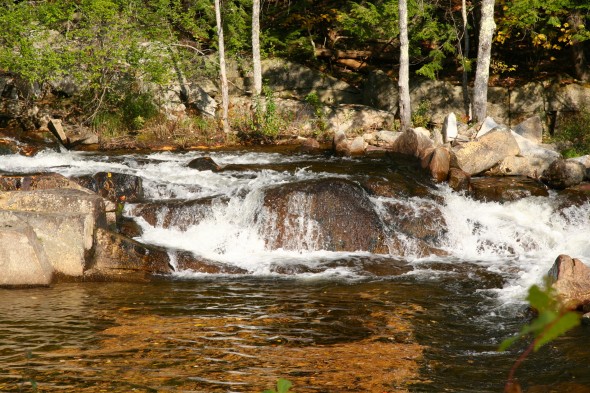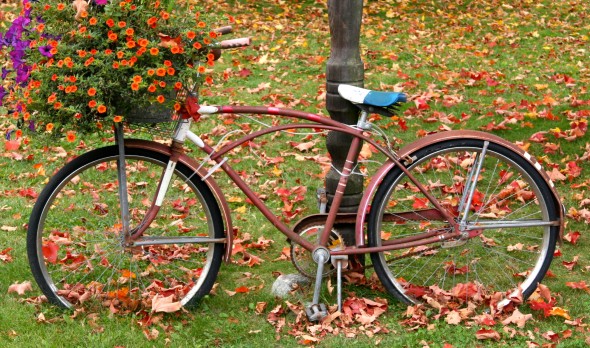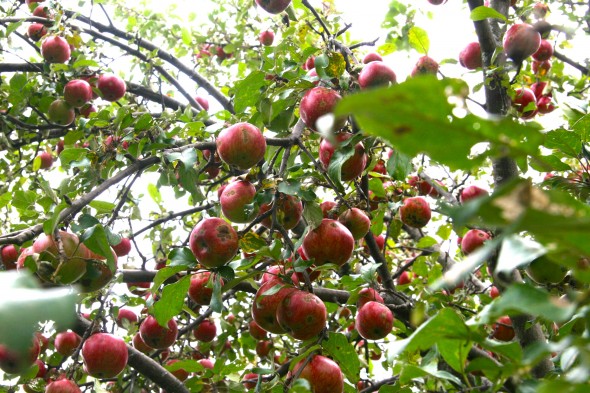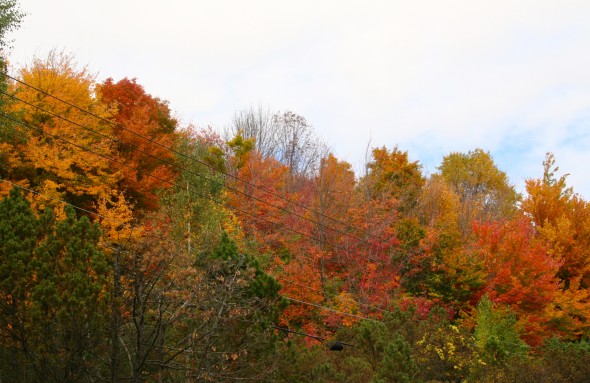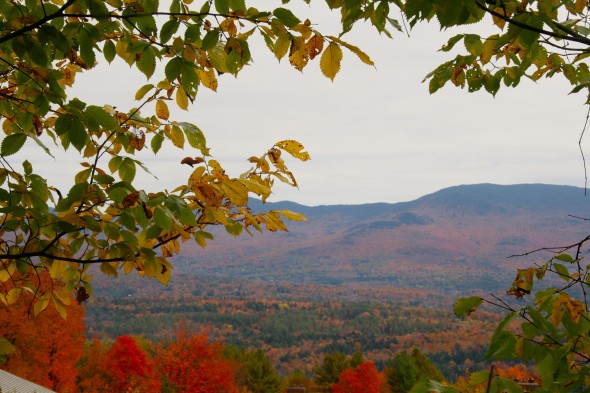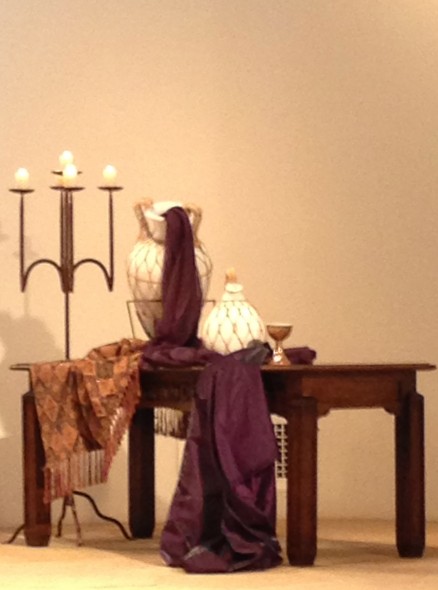When I retired from pastoral ministry three years ago, I assembled a small booklet of prayers I had used in worship over the previous few years, a gift of thanks to the people God called me to serve. This is a prayer from 2008, which I have edited and shifted a bit, in answer to Faith Barista Bonnie’s invitation this week to choose a character in The Story that we relate to. Several of the characters are noted in this prayer, and with less than a week to go before Christmas, I’m not sure exactly which one is closest to where I am tonight.
It’s Christmas Eve again, Lord, and here we are.
Gathered in out of the rain, our Christmas finery on,
our spirits eager – or weary
our ears and our hearts open – or not;
our families nearby,
our dinners either digesting or awaiting us soon.
We’re here.
And for some of us, Lord, that’s just about all we can manage.
We’re just barely able to stand with those shepherds,
tired and cold from their nighttime duties,
confused about the strange singing in the skies above,
wondering about that tiny newborn in the corner.
“So,” we wonder with them, “what’s the big deal with this little one?”
Some of us come, willing only to stand at the edges, perhaps somewhere near those wise ones from the east. Because we’re searching tonight, Holy Friend, we’re searching for truth, for insight, for strange portents in the sky that will give us the answer to the mysteries of the ages.
“Could this be the one?” we wonder with the oriental kings.
“Could this be the answer we’ve been searching for?”
And thankfully, God, there are some of us in this lovely room tonight who are a lot like Joseph.
Steady and stalwart, well-versed in the traditions of our tribe,
yet open to something new that God might be doing.
We struggle to be obedient to what we think God is saying,
to be sensitive to what we think God is doing.
But…it’s been a long, hard journey getting here,
and, to tell you the truth – we’re tired,
through and through.
“Here he is, at last,” we say to ourselves.
But we wonder…”What’s coming next?”
And, Gracious God, there are even some of us here tonight
who might choose to align ourselves with Mary.
We’ve just come through a tough task, but we did it!
The baby is safely birthed, your promises have been fulfilled,
something remarkable is just beginning and we can feel it,
we can see it, shining in the unformed future ahead of us.
And mysterious as it seems to be now, we know, because of the grace we have already experienced in our lives, it is all going to be good news.
All of it.
And so, we gather tonight – like that amazing cast of characters
gathering in this beautiful story
we repeat every Christmas Eve.
The story that is at the center of who we are,
the story that speaks to us of Love Unspeakable,
the story that sings to us of Joy Unsingable;
the story that tells us.
For all of us are welcome here.
That is the glorious truth we praise you for tonight.
All of us — weary shepherds,
searching wise ones,
faithful yet fearful fathers,
loving yet wondering mothers –
all of us are welcome here.
For that little one in the corner over there, that wee newborn,
that tiny, weak and helpless One,
is the same One who blew the breath of life into
each and every one of us.
“How can this be?” we wonder. “How can this be?”
And then, we hear again your words of love and promise and power:
“Behold, a virgin shall conceive…”
“He shall be called Immanuel, God with us…”
“For God so loved the world that he sent his one and only Son…”
And we sigh with relief, we sing with gusto, we remember with joy.
This is Christmas Eve – and we’re here!
Thank you for the story that calls us to this place.
Thank you for the Truth that sleeps in the manger.
Thank you for the chance to begin again at the beginning –
In the name of our remarkable and gentle Savior we pray together tonight.
Amen.
